DT5743
8 Channel 12bit 3.2 GS/s Switched Capacitor Digitizer
Features
- 12-bit @ 3.2 GS/s, 1024 samples per event
- Developed in collaboration with CEA/IRFU & CNRS/IN2P3/LAL and based on the SAMLONG chip
- 3.2, 1.6, 0.8, 0.4 GS/s software selectable sampling frequencies
- Analog inputs on MCX coax. connectors
- 8 channels in a compact Desktop form factor
- 2.5 Vpp input dynamic range with programmable individual DC offset adj.
- One discriminator per channel with programmable threshold
- Adjustable post-trigger delay (up to 1.25 µs @ 3.2 GS/s)
- Digital Memory buffer: 7 events/ch
- 1024 samples per channel (320 ns recorded time per event @ 3.2 GS/s)
- Dead time due to event conversion: 125 µs (max. @ 1024 samples)
- Real time hit counting independent of acquisition rate on each channel
- On-board charge calculation for fast histogramming (user-defined integration window)
- One embedded pulser per channel for test and reflectometry applications
- Optical Link interface (CAEN proprietary protocol)
- USB 2.0 compliant communication interface
- A2818(PCI) / A3818 (PCIe) Controller available for handling up to 8/32 modules Daisy chained via Optical Link
- Firmware upgradeable via USB/Optical Link
- Fully controlled by the WaveCatcher readout software
- Drivers and libraries for Windows and Linux 32/64-bit
Overview
The Mod. DT5743 is a Desktop module housing 8 Channel 12 bit 3.2 GS/s Switched Capacitor Digitizer, with 2.5 Vpp single-ended input dynamics, issued from the collaboration with CEA/IRFU & CNRS/IN2P3/LAL and based on SAMLONG chip. A programmable DAC on each channel allows for DC Offset adjustment in the ±1.25 V range.
The analog input signals are continuously sampled into the SAMLONGs (sampling intervals down to 312.5 ps) in a circular analog memory buffer (1024 cells). As a trigger signal arrives, all analog memory buffers are frozen and subsequently digitized with a resolution of 12 bits into a digital memory buffer. During analog to digital conversion process, the DT5743 cannot handle other triggers (Dead Time: 125 us).
The memory buffer allows to store up to 7 full events for each cannel (1 event = 1024x12bit). The buffer can be read by USB or Optical Link simultaneously with write operation of successive events.
The module features front panel Clock Input and a PLL for clock synthesis from internal/external references. DT5743 supports multi-board synchronization allowing all switched capacitor memories to be synchronized to a common clock source and ensuring Trigger time stamps alignment. Once synchronized, all data will be aligned and coherent across multiple DT5743 boards
Each channel is equipped with an individual discriminator, with programmable threshold, which generates a trigger request when the input signal goes over threshold. The trigger requests from the channels are processed by the board to generate a common trigger causing all the channels to acquire an event simultaneously. The common trigger can also be provided externally via the front panel Trigger Input or via the software, for debug purposes, through VMEbus/Optical Link.
DT5743 houses USB 2.0 and Optical Link interfaces. USB 2.0 allows data transfers up to 30 MB/s. The Optical Link supports transfer rate of 80 MB/s and offers Daisy chain capability. Therefore, it is possible to connect up to 8/32 ADC modules to a single Optical Link controller (Mod. A2818).
Mod. DT5743 features an embedded Charge Mode, where the pulse integration window is defined by the user (high rates ~3.5 KEvents/s). This feature allows to perform on-line processing on detector signal directly digitized.
Some typical applications:
- Precise characterization of high speed detectors (PMTs, SiPMs, APDs,…)
- High Resolution Photon timing with MCP-PMTs
Software available (Windows and Linux):
CAEN provides drivers for all the different types of physical communication channels, a set of C libraries (CAENComm and CAENDigitizer) for Windows and Linux OS, as well as a control software tool for Windows:
- CAENUpgrader: tool that allows the user to update the firmware of the digitizers, change the PLL settings, load, when requested, the license for the pay firmware and other utilities.
- WaveCatcher: fully graphical program that implements an oscilloscope.
Technical Specifications
- GENERAL
Form Factor: Desktop
Weight: 680 g
Dimension: 166 x 69 x 171 mm3 (WxHxD)
- ANALOG INPUT
Channels: 8 channels single ended
Bandwidth: 500 MHz
Impedance: 50 Ω
Absolute max analog input voltage: ± 3.5 V
Connector: MCX
Full Scale Range: 2.5 Vpp DC coupled
Offset: Programmable 16-bit DAC for DC offset adjustment on each channel. Range: ± 1.25 V
- TEST FUNCTION
One pulser per channel with programmable 16-bit pattern (fixed amplitude)
- DIGITAL CONVERSION
Analog Memory (Switched Capacitor Array) SAMLONG Fast Analog Memory chip
2 channels, 1024 storage cells/ch
320 ns minimum recorded time/eventResolution 12 bits
Sampling Rate
3.2/1.6 /0.8/0.4 GS/s
SW selectable simultaneously on each channelDead Time (Event A/D Conversion) 125 µs (max. @ 1024 samples) decreasing proportionally with the recording depth (configurable record length)
- CHANNEL FPGA
Altera Cyclone EP3C16 (one FPGA manages 4 channels)
- TRIGGER
Trigger Source – Self-trigger: channel over/under threshold (based on analog discriminator on each channel with DAC adjusted threshold) for Common trigger generation– External-trigger: Common by TRG-IN connector (NIM/TTL, LEMO, Zin = 50 Ω)– Software-trigger: Common by software commandTrigger Propagation GPO programmable digital output (NIM/TTL,
LEMO connector, requires 50 Ω termination)Trigger Threshold Programmable thru a 16-bit DAC in the ±1.25 V range on each channel
Trigger Time Stamp 40-bit counter, 5 ns resolution, 83 minutes range
- TIMING RESOLUTION
< 8 ps RMS (5 ps RMS typical) @ 3.2GS/s obtained at thermal regime, after INL time calibration and with dual-pulse timing measurement by pulse generator.
Test conditions: periodic input pulses with 1V Amplitude, 1kHz Frequency, rise time of 0.8/1.6/2.5 ns; the resolution does not change significantly when varying the delay Δt between the two pulses.
Note: it is recommended to provide proper cooling to improve the resolution performances
- SYSTEM PERFORMANCES
Sampling Time Precision
< 20 ps @ 3.2 GS/s (before calibration)
< 5 ps @ 3.2 GS/s (after calibration)
Note: obtained with factory calibration and dual-pulse timing measurement with pulse generator.
Test conditions:- Periodic input pulses with 1-V Amplitude,
- 1-kHz Frequency,
- Rise time of 0.8 / 1.6 / 2.5 ns.
The resolution does not change significantly when varying the delay Δt between the two pulses.
Noise Level: 0.75 mV RMS
- ADC CLOCK GENERATION
- Synchronization clock source: internal/external
- On-board programmable PLL provides generation of the main board clocks from an internal (50 MHz loc. oscillator) or external (front panel CLK-IN connector) reference
- DIGITAL I/O
CLK-IN (AMP Modu II) - AC coupled differential input clock
- LVDS, ECL, PECL, LVPECL, CML (single ended NIM/TTL available)
- Jitter<100 ppm requested
TRG-IN (LEMO) External trigger or Start/Stop acquisition digital input: NIM/TTL, Zin = 50 Ω
GPI (LEMO) Trigger Time Stamp reset or Start/stop acquisition digital input: NIM/TTL, Zin = 50 Ω
GPO (LEMO) Common trigger digital output: NIM/TTL, Rt = 50 Ω
- ACQUISITION MEMORY
- 7 full event/ch Multi‐event buffer (1024 S/event, that is 320 ns/event @ 3.2 GS/s)
- Independent read and write access
- Programmable event size and pre/post‐trigger
- SYNCHRONIZATION
Clock Propagation
One-to-many clock distribution from an external clock source, typically at 50 MHz, on CLK-IN (AC coupled differential input clock: LVDS, ECL, PECL, LVPECL, CML on AMP MODU II connector)
Clock Cable delay compensationAcquisition Synchronization
– Sync Start/Stop through digital GPI or TRG-IN digital input, GPO output– External Trigger time Stamp resetTrigger Time Stamps Alignment
By GPI input connector
- ADC & MEMORY CONTROLLER
Altera Cyclone EP3C16 (1 FPGA serves 4 channels)
- COMMUNICATION INTERFACE
Optical Link: CAEN CONET proprietary protocol, up to 80 MB/s transfer rate Daisy chainable: it is possible to connect up to 8/32 ADC modules to a single Optical Link Controller (Mod. A2818/A3818)
USB: USB 2.0 compliant Up to 30 MB/s transfer rate
- DIGITAL PULSE PROCESSING
Software selectable embedded Charge Mode for input pulse high rate charge integration and fast histogramming
- FIRMWARE UPGRADE
Normal Mode (default): Waveform recording
Charge Mode (sw selectable): Input pulse high-rate charge integration
Upgrades: Supported via USB/Optical Link
- SOFTWARE
- Readout SW: WaveCatcher (Windows® only) WaveDemo_x743 (Windows®, Linux®) including C source files and VS project
- Libraries and Tools: General purpose C libraries (Windows®, Linux®) Configuration tools
- ENVIRONMENTAL
Environment: Indoor use
Operating Temperature: 0◦C to +40◦C
Storage Temperature: –10◦C to +60◦C
Operating Humidity: 10% to 90% RH non condensing
Storage Humidity: 5% to 90% RH non condensing
Altitude: < 2000m
Pollution Degree: 2
Overvoltage Category: II
EMC Environment: Commercial and light industrial
IP Degree: IPX0 Enclosure, not for wet location
- REGULATORY COMPLIANCE
EMC: CE 2014/30/EU Electromagnetic Compatibility Directive
Safety: CE 2014/35/EU Low Voltage Directive
- POWER CONSUMPTIONS
- The module is powered by external AC/DC stabilized power supply included in the kit (12 VDC, 45 W)
- Operating Supply Voltage: +12 VDC ± 10%
- Consumptions (@ +12 VDC): 1.5 A (typ.) ± 10% tolerance
Compare
Compare with Digitizers.
Loading...
Accessories
- A654
- Cable assembly LEMO 00 male to MCX male – 1 m
- A659
- Cable assembly BNC male to MCX male – 1 m
- AI2700
- Optical Fiber Series
- A318
- Adapter for Clock signal FISCHER S101A004 male to 3-pin AMPMODU IV female – 10 cm
- A317
- Cable assembly for Clock distribution 3-pin AMPMODU IV female terminations – 18 cm / 25cm
- A5818
- PCI Express Gen 3 CONET2 Controller
- A4818
- USB 3.0 to CONET2 Adapter
Ordering Options
| Code | Description |
|---|---|
| WDT5743XAAAA | DT5743 - 8 Ch. 12 bit 3.2GS/s Switched-Capacitor Digitizer: 7 events/ch (1kS/event), EP3C16, SE RoHS |



